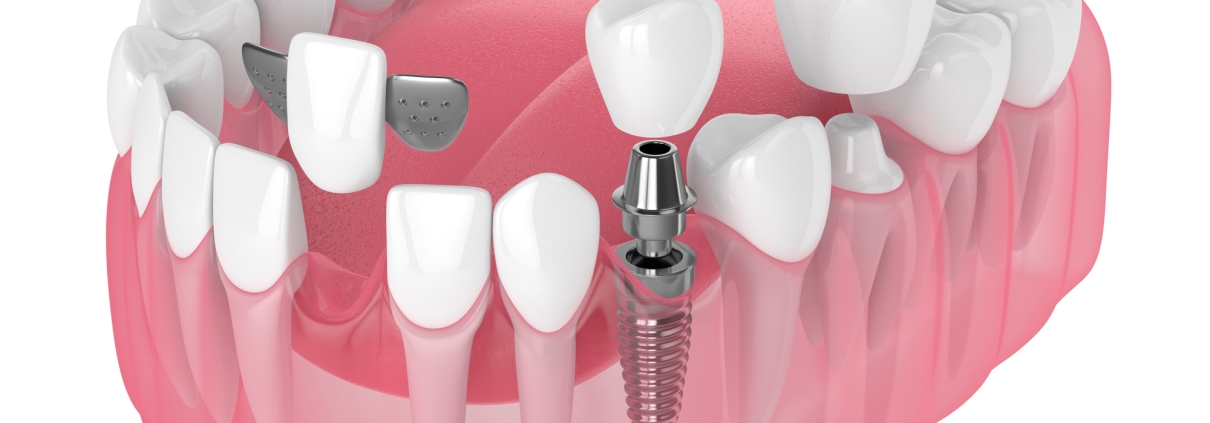Dental Implants vs. Dentures, Which Option Is Right for You?
Losing teeth can significantly impact your oral health, appearance, and confidence. Fortunately, modern dentistry offers effective solutions to restore your smile: dental implants and dentures. Both options have their advantages and disadvantages, and the best choice for you depends on your unique needs, lifestyle, and budget. Let’s explore the key differences between dental implants and dentures to help you make an informed decision.
What Are Dental Implants?
Dental implants are a permanent solution for missing teeth. They consist of three components: a titanium post surgically inserted into the jawbone, an abutment that connects the post to the replacement tooth, and a crown that mimics the look and function of a natural tooth. Implants are designed to be durable, long-lasting, and almost indistinguishable from real teeth.
Advantages of Dental Implants
- Longevity: With proper care, dental implants can last for decades, making them a worthwhile investment.
- Natural Appearance and Function: Implants look, feel, and function like natural teeth, allowing you to eat, speak, and smile with confidence.
- Bone Health: Implants stimulate the jawbone, preventing bone loss and maintaining facial structure.
- Low Maintenance: Regular brushing, flossing, and dental check-ups are all that’s needed to maintain implants.
Disadvantages of Dental Implants
- Cost: Dental implants are more expensive upfront compared to dentures.
- Surgical Procedure: The process involves surgery and a recovery period, which may not be suitable for everyone.
- Time-Intensive: The implantation process can take several months, as it involves healing time for the jawbone to integrate with the implant.
What Are Dentures?
Dentures are removable appliances designed to replace missing teeth. They come in two types: full dentures (for those missing all their teeth) and partial dentures (for those missing only a few teeth). Dentures rest on the gums and are custom-made to fit the shape of your mouth.
Advantages of Dentures
- Affordability: Dentures are generally more cost-effective than dental implants, making them accessible to a wider range of people.
- Non-Invasive: Dentures do not require surgery, making them a quicker and less invasive option.
- Customizable: Modern dentures are designed to fit comfortably and can be tailored to match the appearance of your natural teeth.
- Immediate Solution: Dentures can often be made and fitted relatively quickly compared to the time required for implants.
Disadvantages of Dentures
- Stability Issues: Dentures can shift or slip, especially when eating or speaking, leading to discomfort or embarrassment.
- Bone Loss: Unlike implants, dentures do not stimulate the jawbone, which can lead to bone loss over time.
- Maintenance: Dentures require daily cleaning and care, and they may need to be replaced or adjusted every few years.
- Dietary Restrictions: Certain foods may be difficult to eat with dentures, especially sticky or hard items.
Key Factors to Consider
When deciding between dental implants and dentures, consider the following factors:
- Oral Health: If you have a healthy jawbone and gums, implants may be a viable option. However, significant bone loss may make dentures a better choice unless bone grafting is performed.
- Budget: Implants have a higher upfront cost but may be more cost-effective in the long run. Dentures are more affordable initially but may require more frequent replacements.
- Lifestyle: Implants are fixed and offer greater convenience for an active lifestyle. Dentures, on the other hand, may require adjustments during physical activities.
- Aesthetic Preferences: While both options can restore your smile, implants tend to look and feel more natural.
- Timeframe: If you need a quick solution, dentures might be preferable, as implants involve a longer process.
Combining Both Options
For some individuals, a combination of implants and dentures—known as implant-supported dentures—may offer the best of both worlds. This hybrid approach involves securing dentures with dental implants, providing improved stability and comfort.
Consult Your Dentist
Choosing between dental implants and dentures is a personal decision that should be made in consultation with your dentist. They will evaluate your oral health, discuss your goals, and recommend the best solution for your specific needs.
Final Thoughts
Both dental implants and dentures have their unique benefits and drawbacks. Dental implants offer a permanent, natural-looking solution, while dentures are a more affordable and non-invasive option. By understanding the differences and considering your priorities, you can confidently choose the option that aligns with your lifestyle and budget, ensuring a healthy, functional, and beautiful smile.

